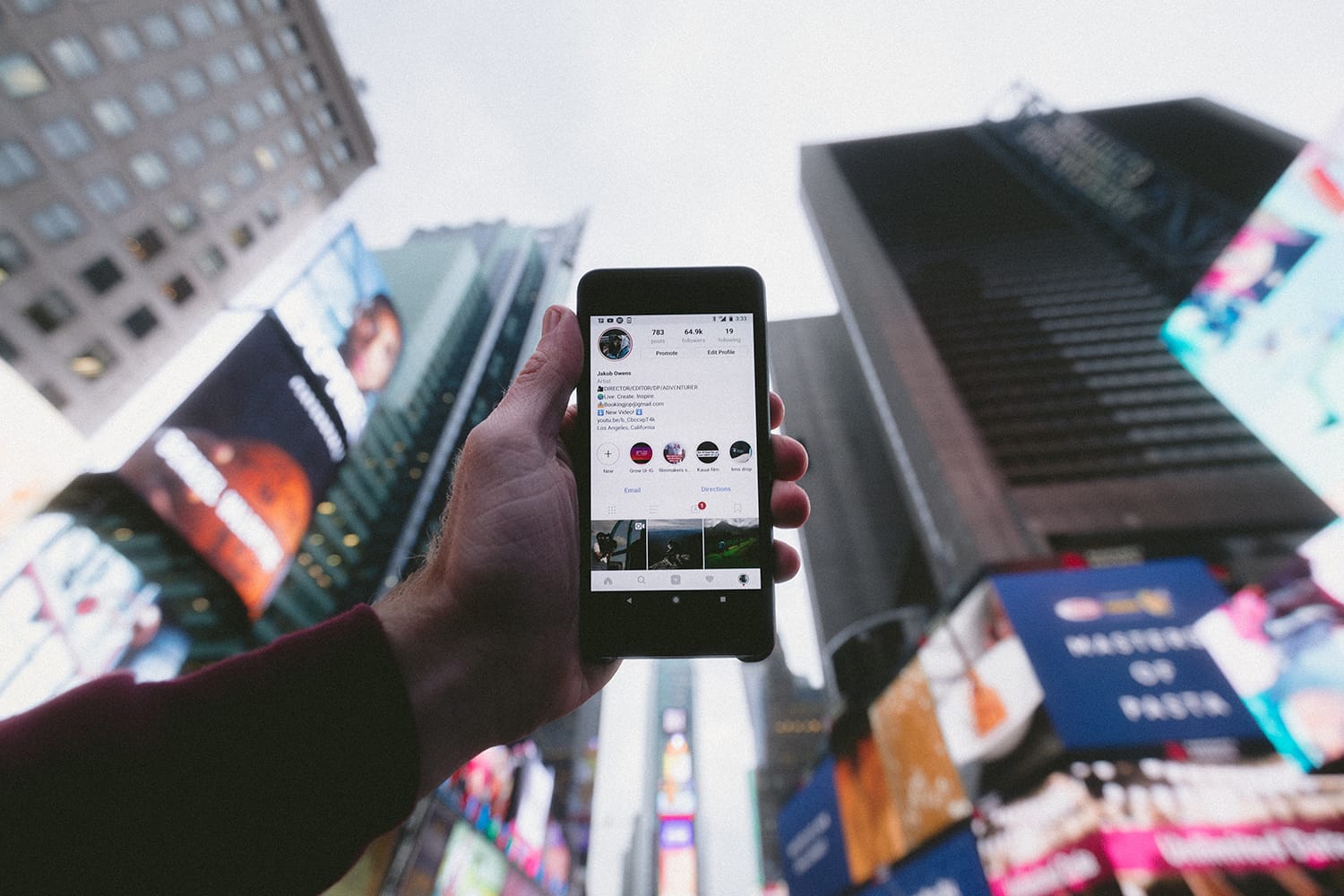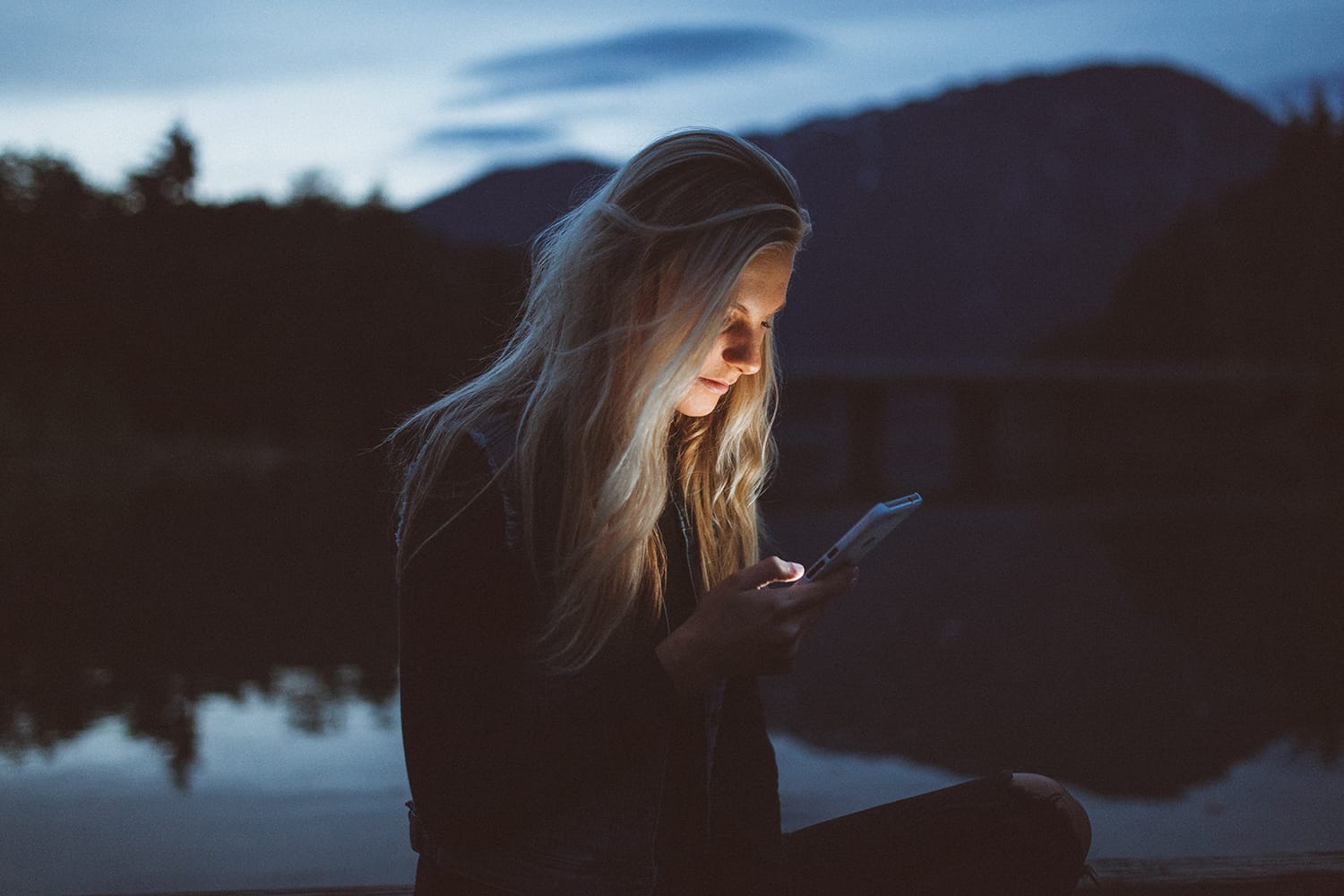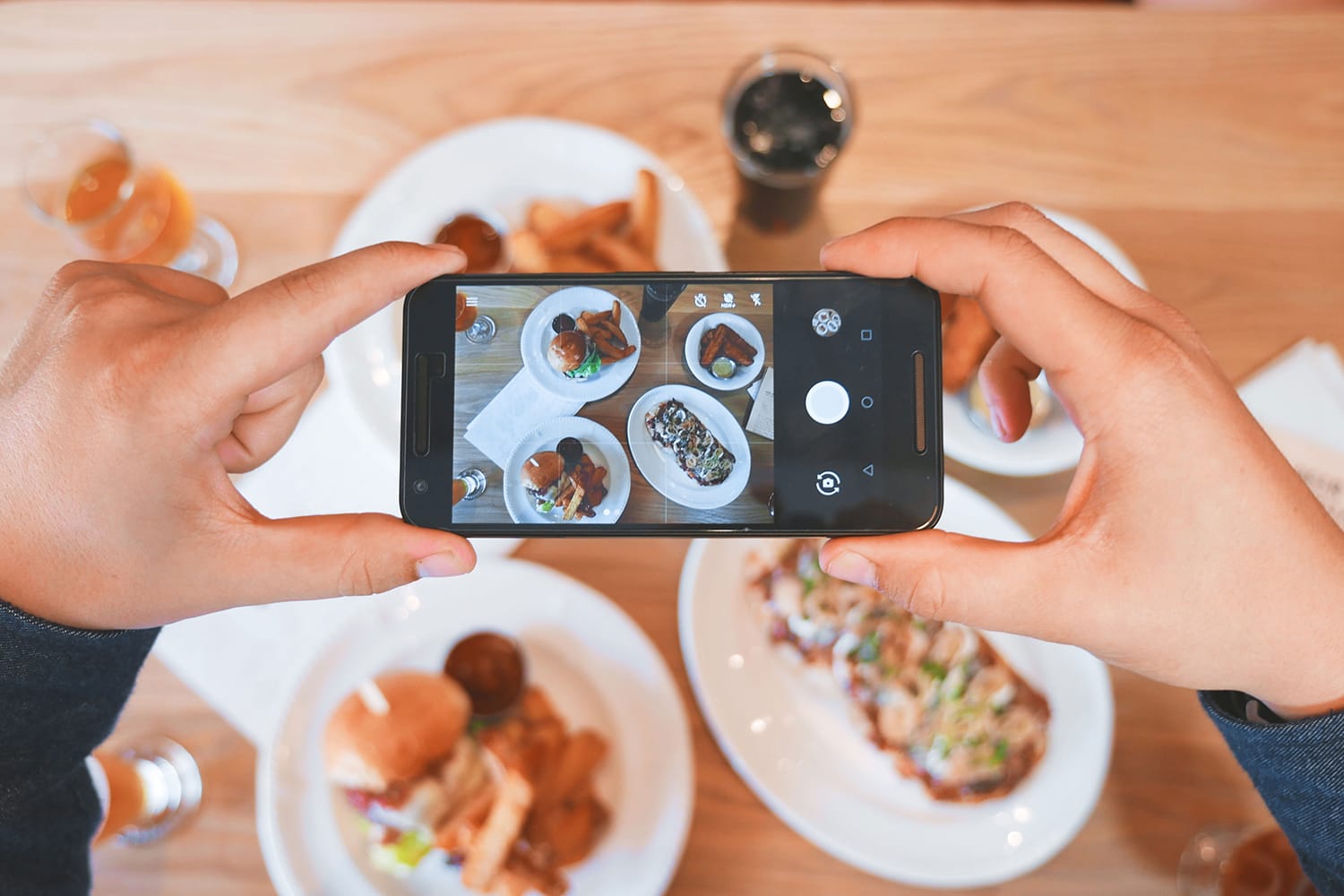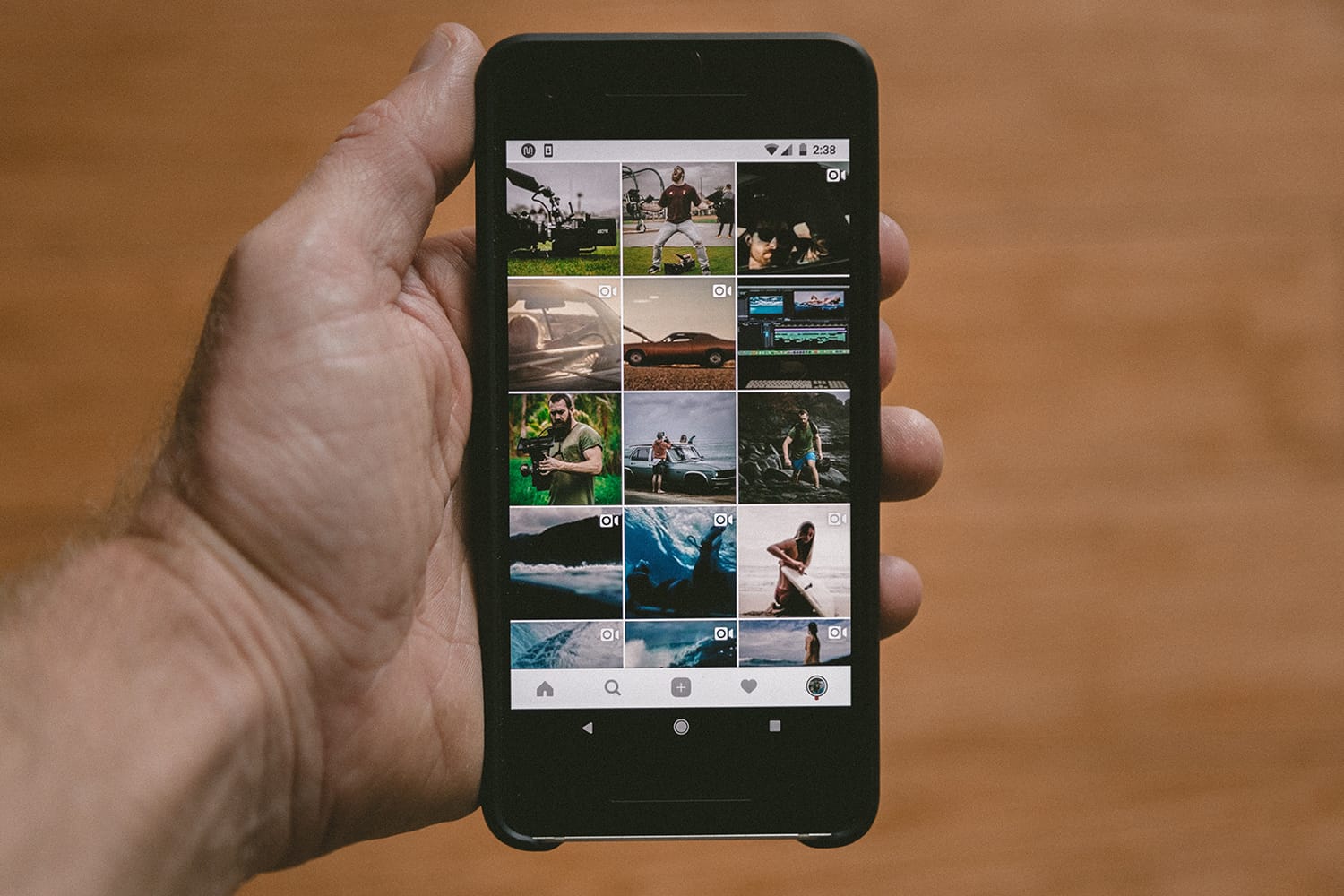The Pros and Cons of Social Media (for Photographers)
Ever since social media has taken the spotlight, the way we share our creative output has changed. Whereas photographers and other artists used to work hard just to get featured in a museum, gallery, or exhibit, nowadays, it takes only a few clicks on Instagram or Facebook for someone to notice your work.
While some photographers look at this technology as a blessing, there are others who think otherwise. Those who see it as a blessing focus on the instant gratification. There are thousands of photographers who started like this and are now enjoying a considerable fan base – especially on Instagram. It’s the non-traditional way of “marketing” your skills, and it works.

Those who do not agree with using social media for photography are mostly against such things as their photos being used for other purposes or according to the agenda of the user. A good example would be memes that are intended to provoke and elicit reactions from different individuals and online communities. There are even others who use photos for political reasons without asking permission from the photographer.
To better understand this, however, it would be appropriate to point out that social media has both advantages and disadvantages for its users – and particularly for earnest and well-meaning photographers.
The Advantages of Using Social Media If You Are a Photographer
1. One of the major advantages of using social media is your “connection to the world”
Photographers, especially those who are still trying to build an audience, have a free online venue where they can showcase their works without having to think about how long it will stay there or how much they need to pay the gallery.
In addition, their photos are shared all over the world, so the chances of someone seeing their work for what they represent are greater. This is how social media creates the “word of mouth” aspect. When a person or a group of individuals sees a particular photo they like online, they immediately share this information with others. And this can go on for several days with several other people.
So then, a network is created, and this network is what will help photographers find opportunities they need to get their career flying.
Some photographers built their portfolio through the help of connections gained from posting their works on image websites like Flickr. This website works like a social media platform for photographers as it opens up opportunities for them to find clients willing to pay for their services. Flickr helps photographers – especially new ones – by boosting their profiles and pages so that potential clients will see them.

2. Social media is a good place for connecting with like-minded people
They say that if you want to keep learning and improving at what you do, you need to establish a connection with people who share your passion and interest. This is why photographers are encouraged to join contests, workshops, seminars, and photo walks, among others.
On social media – specifically on Facebook and Instagram, for example – once you post your photos, people who are into photography, are thinking of hiring a photographer, or are photographers, will be the ones who will connect with you and react on your post. As such, you begin to establish a connection with them – with like-minded individuals who share your passion for photography.
One of the takeaways this can offer is the possibility of connecting with photographers who are eager to share their knowledge and experiences with you. As such, you don’t only get to share each other’s works; you also get to share your learnings.
3. A lot of photographers like posting their photos on social media because it guarantees real-time sharing of information.
They can communicate with users who comment on their posts, as well as those who send them messages via chat. They can connect with their audience in real-time. As such, feedback and updates are instant. You don’t have to wait for days or weeks to find out how people reacted to your work.

4. Social media allows you to address your content to specific users
This is especially true for Facebook, which allows you to boost posts (by paying a fee based on your desired results) and choose your target audience. This feature has helped a lot of photographers (and businesses in general) to maximize their target reach and establish a connection with a specific audience.
5. Social media is a good platform for finding a community where you are welcome
Finding an online community of photographers is helpful because it gives you a kind of assurance that you are not alone. Whether you are a novice, professional, or hobbyist, there are photographers in your online community that you can relate with. You are confident because you have people who can share with you their knowledge and experiences on things like building a portfolio, how much to charge clients, how to prevent copyright infringement and other photography-related issues.
There are even instances when photographers help each other out in more personal situations, such as in seeking financial assistance or in health-related cases.
These communities are also the ones that can help you connect with the right audience; with the people or groups that can open up brighter marketing opportunities for you.
The Disadvantages Photographers Should Take Note Of
Although the advantages are quite a lot, using social media for your photography also has a slew of disadvantages.
1. On social media, you have no control over how people will use your photos
Although you can always set your profile to private, not many photographers do this because it will defeat the purpose of getting your works across thousands or millions of people. So, it shouldn’t come as a surprise to you if you see your photo shared somewhere on Facebook and Instagram. This time, however, it can be in the form of a meme.
A meme can be funny, intriguing, or (at times) degrading. A meme does not magically appear when you want it. It comes from photos created by real photographers. And it features real people. Most of these photos are altered (even made fun of) for whatever its purpose may serve the user.
Photographers, especially those who value their craft, definitely do not want their images to be turned into memes. This may not sound that bad for some, but for others, it’s already equivalent to stealing photos that are not yours and using them without permission from the owner. It’s all about stealing a person’s creative and intellectual property.
2. Social media can dictate what content you should post
According to photographer Sara Lando, social media can fuel inauthentic creativity. It can dictate what kind of content you should post. And this is usually dependent on the people who follow you or your page. For example, if you’ve been posting photos of your trip to Bali for days, your audience expects you to follow it up with something just as majestic or grand. So, if you post photos of a fun camping trip with your cousins, it will not attract the same number of likes. In some ways, according to Lando, social media forces its users – including photographers – to change the way they create.

For a photographer, this can mean shifting to a kind of photography that your followers or fans expect of you but one that you are not comfortable with.
3. Social media will “keep” your photos on the Internet
Would you want your photos to stay on the Internet forever? In reality, even if you’ve already set your profile’s privacy and visibility, there are still countless possibilities for your photos to come up in searches. Do you want this to happen to you? To all the images you’ve worked hard to create?
So, should you stay or should you go?
The choice is yours, really. Some people say it’s not social media that allows these disadvantages to happen; oftentimes, they’re a result of how we use the platform. Social media’s primary goal is to connect people and help establish good communication links. It’s up to its users to use this to full advantage – for the common good.
If you post your photos on social media, you’re not doing anything wrong. However, you have to be responsible and constantly aware. You have to be true to your craft so your followers won’t control you. You alone should determine the content you post. And it would help if you understood the risks that go with posting your work online.
On the other hand, you should also learn to take advantage of the opportunities that are given to you through social media – whether it is a solid network, favorable reviews, or good marketing options.
